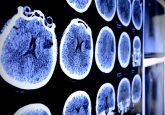New method to evaluate drug resistant hepatitis C virus mutation

Researchers from Hiroshima University (Japan) have developed a novel method to detect drug-resistant hepatitis C virus (HCV) mutants. The team developed a highly sensitive and accurate system to detect HCV Y93H drug-resistant mutant strains, and to measure the number of patients harboring this mutation before undergoing therapy.
In more than 50% of the samples with low HCV titers, the Y93H drug-resistant mutation could be successfully detected. It is hoped that the new system will provide pre-treatment information useful to guide treatment decisions and predict disease progression in HCV genotype 1b patients.
HCV often develops resistance against antiviral agents, and the presence of the Y93H mutation prior to treatment has been reported as an important predictor of virologic failure. Direct sequencing is a commonly used technique to detect this mutation. However, it is limited to detecting viral subpopulations with frequencies of 10% to 20% or greater. Next generation sequencing has recently been used as a more sensitive method to analyze viral mutations, but it is expensive and complex to perform.
The Y93H drug resistant mutation can be detected using nested PCR and the Invader assay. The mutations were detected with a success rate of 98.9% among a total of 702 Japanese HCV genotype 1b patients.
“Our assay system also showed a much lower detection limit for Y93H than using direct sequencing, and Y93H frequencies obtained by this method correlated well with those of deep-sequencing analysis,” explained Kazuaki Chayama, Professor at Hiroshima University and principal investigator for the study.
This system estimated that 23.6% of patients had the Y93H mutant strain; a rate comparable to that assayed by real-time PCR and ranked between those of deep sequencing and direct sequencing reported in the Japanese population, presumably reflecting the lower detection limit of Y93H.
The new system was more sensitive in detecting Y93H than direct sequencing, and had a high success rate. The analysis of Y93H strain has the potential to provide key information for the prediction of disease progression in HCV genotype 1b patients.
Sources: The new detection method for a key drug resistant hepatitis C virus mutation; Yoshimi S, Ochi H, Murakami E et al. Rapid, sensitive, and accurate evaluation of drug resistant mutant (NS5A-Y93H) strain frequency in genotype 1b HCV by Invader Assay. PLOS One, DOI: 10.1371/journal.pone.0130022 (2015).





